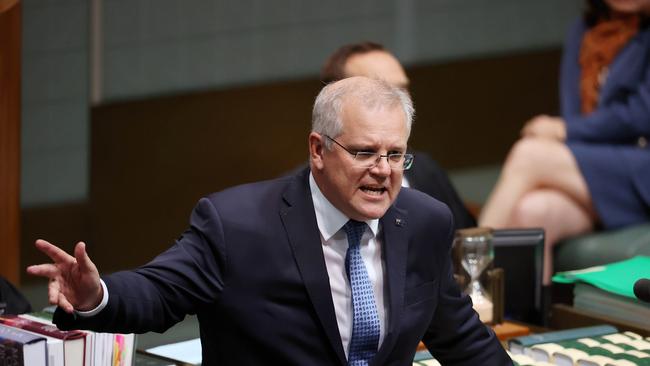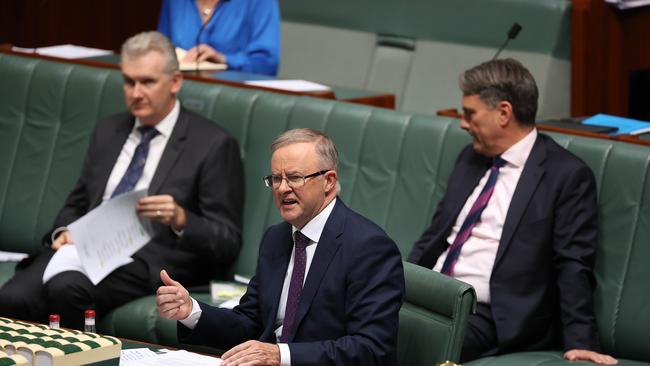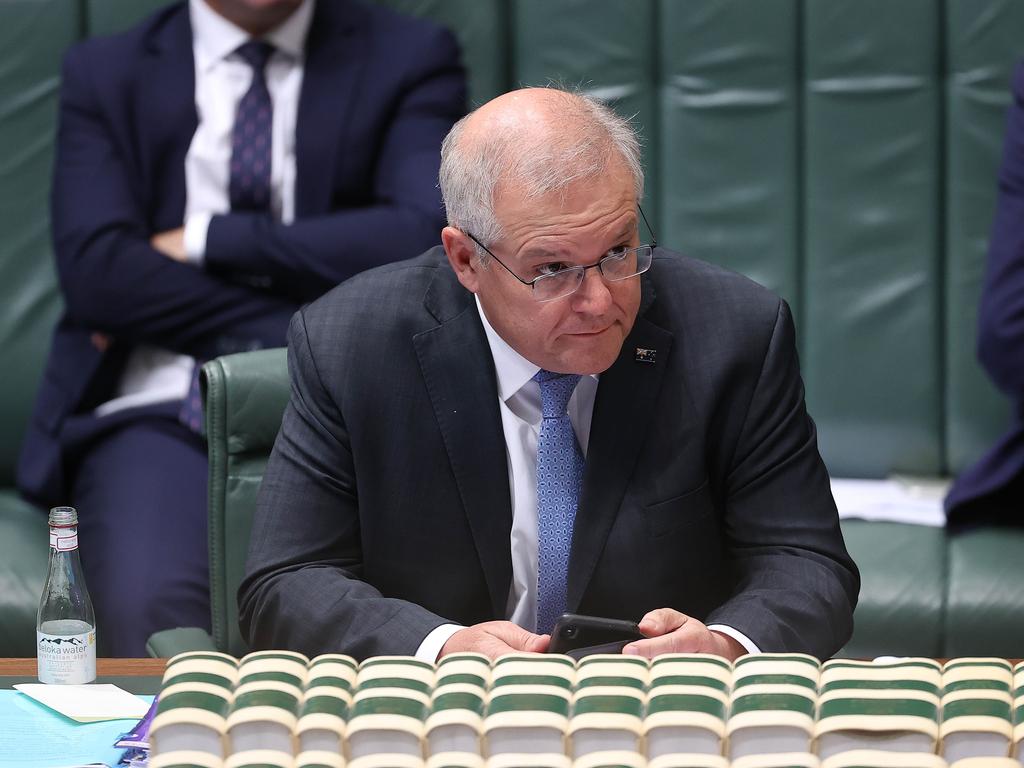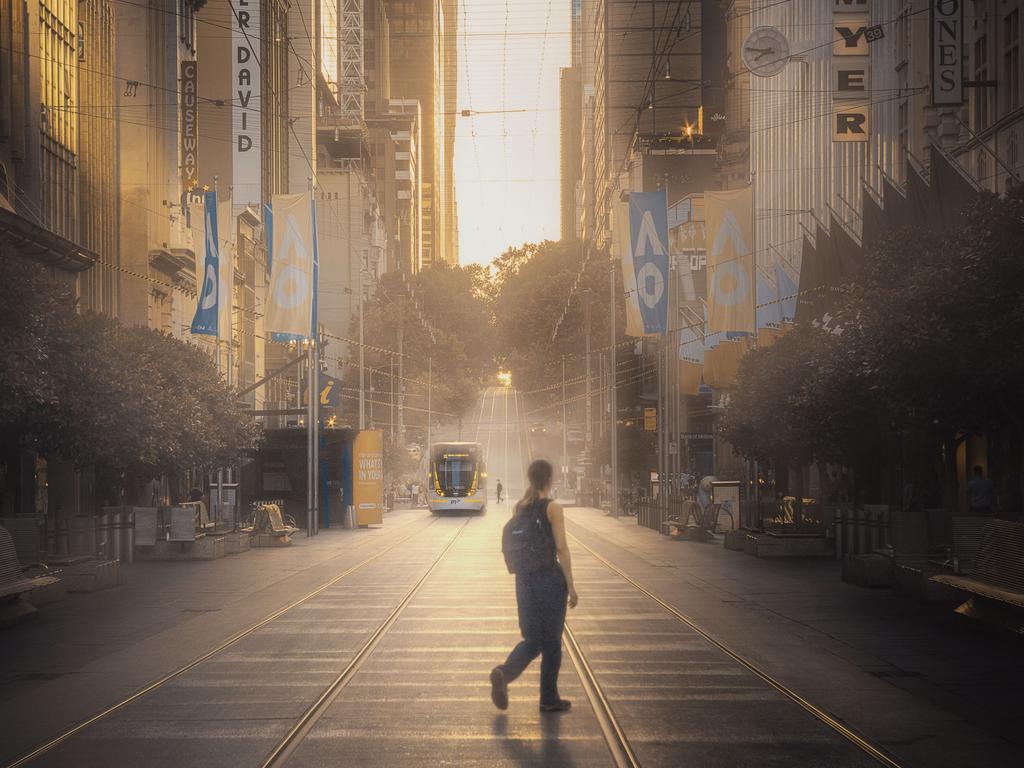Labor’s lost in the fog as PM exploits key by-election win
Scott Morrison’s management, political strategy and re-election campaign are developing like a fog of war – a cold whiteness that advances silently and insidiously.

The Prime Minister has become famous for an incremental approach on policy and politics where he advances almost imperceptibly, silently and insidiously surrounding his opponents and smothering arguments with a cold whiteness that lacks a focus for the opposition to attack.
Like fog, too, Morrison’s strategy is full of wispy changes of direction, retreats – and, where there is too strong a political wind, a sudden dissipation, only to reappear somewhere else encircling his opponents.
This shifting strategy, relying on patience and adaptation, has the short-term disadvantage of looking inconsistent, not standing by convictions, being weak, superficial and giving in to popular pressure. This is a real danger, but the risk is minimised during the Covid-19 pandemic when the public is more forgiving, even welcoming, of changes in ideological or political positions.
The risk of being seen not to stand for something is also a threat for Morrison from both ends of Coalition support, with the more conservative side angry at him for giving into progressive campaigns on social and cultural issues, and the liberals angered at his delay in making a definitive commitment to greenhouse gas emissions and renewable energy.
But if Morrison survives the short-term disadvantages and Anthony Albanese’s attempts to personalise the politics as being “ScoMo from marketing” and “all smirk or shirk” and no responsibility, then he will succeed where Tony Abbott and Malcolm Turnbull failed: achieving Coalition unity while splitting the ALP.
This is where the malleable Morrison fog bank is effective not only in smothering Labor’s opposition but also in providing flexibility within the Coalition.

The resumption of a full sitting of the House of Representatives this week after Labor’s inept handling of the NSW by-election in the seat of Upper Hunter clearly demonstrated Morrison’s determination and ability to simultaneously push forward on one policy while pulling back on another. It also showed his superior appreciation of the potential political effect of a state by-election on federal politics.
While NSW Labor Opposition Leader Jodi McKay on Friday paid the ultimate price for allowing the rise of expectations of an ALP victory in a historical Nationals seat – where Labor’s climate change policies have slashed support during a pandemic – Albanese is paying a price for missing the opportunity to tell voters in regional and mining areas that federal Labor cares for workers.
Morrison, having learnt the lesson of what impact a state by-election can have on federal politics at the 2010 Penrith by-election, when illegal boat arrivals emerged as a red hot issue in western Sydney, did not miss the opportunity.
Although he has been successfully, and of course incrementally, moving the Liberals to a target of net-zero carbon emissions by 2050, Morrison immediately pulled back on emissions targets rhetoric and prioritised jobs in regional areas, mining, industry and pushed the argument for lower energy prices.
The state seat of Upper Hunter, where 75 per cent of the primary vote was cast for candidates supporting coal, including the ALP candidate, became a microcosm of the national debate about carbon emissions, energy prices, gas and coal-fired power stations, and job security.
What’s more, Morrison melded these livelihood issues with the threat to lives from Covid-19 so that he was able to point to economic progress from the Coalition as he warned “the virus is still out there”. John Howard wanted Australians to be “alert not alarmed” about terrorism; Morrison wants them cautious not complacent about the coronavirus and economic lockdowns.
Morrison turned the Upper Hunter into a template for a national campaign on jobs with the knowledge that in 2004, Howard’s pledge to protect timber workers’ jobs in one Tasmanian seat generated and amplified Coalition support among blue-collar workers across the mainland after unionists cheered the Liberal prime minister.
Repeatedly in parliament this week, Morrison sent a message to all blue-collar workers that the Coalition wants to protect jobs.
“We want to keep making things in this country, as we are,” he told parliament on Thursday.
“We want to keep producing aluminium, whether it is up in Gladstone or down in Portland or up in Tomago. We want to keep making steel, whether it is in Whyalla or other places. We are doing that by ensuring that they get the affordable and reliable energy they need, not just now but also into the future.”
He also listed the emergency power-trading scheme in Portland and, of course, the Kurri Kurri gas-fired electricity plant in the Hunter which was opposed by federal Labor and was crucial for the Coalition by-election victory.
Morrison did not neglect consideration of carbon emissions altogether, but it was couched in terms of emissions reduction that still protects jobs.
“We are reducing electricity prices, putting downward pressure on electricity prices, and ensuring that businesses in this country – and particularly in regional areas in the heavy industries of this country – can get access to the affordable and reliable energy they need to keep people in jobs,” Morrison said.
“And we’re doing that at the same time as seeing emissions reduce by 19 per cent since 2006. Like economies, such as Canada, have had a zero per cent reduction in emissions. Here in Australia we have achieved a 19 per cent reduction in emissions since 2005,” he added as the fog swirled from one gully into another.
Albanese avoided talking about the Upper Hunter by-election as much as possible this week and concentrated Labor’s attack on Morrison – not over jobs, but over quarantine outbreaks and the coronavirus vaccine rollout.
In parliament, he said the Morrison government had only two jobs: “The vaccine rollout and quarantine. It has botched both.
“We have a Prime Minister who never accepts responsibility. He’s too busy rolling out the red carpet for himself to roll out the vaccination for Australians. This is not just a government of smirk and mirrors; it’s a government of shirk and mirrors.”
While Morrison characterises this approach as “attacking the government while we attack the virus” Albanese is entitled to hold the Coalition to account. But as Albanese grasps at passing issues, where Australian voters have demonstrated a huge latitude to incumbent governments, he needs to see beyond the fog and look at what are going to be the defining issues at the next election, and jobs – particularly regional jobs in NSW, Queensland, Victoria and Tasmania – is one of those defining issues.
Morrison didn’t miss the opportunity to use a state by-election to evolve and adapt his federal policies and politics, but Albanese was in dangerous denial.







Scott Morrison’s government management, political strategy and re-election campaign are developing like a fog of war – not as in a fog, but actually like a fog.